Victor K. Fung, Group Chairman of the Fung Group and member of Tsinghua University School of Economics and Management (Tsinghua SEM) Advisory Board, lectured about "The Future of Multilateralism and International Trade" on the morning of October 19, 2023. Fung shared his view of the current trade environment and explained how Chinese companies can better reach world markets with Tsinghua SEM EMBA students. XUE Jian, deputy dean of Tsinghua SEM, moderated the lecture.
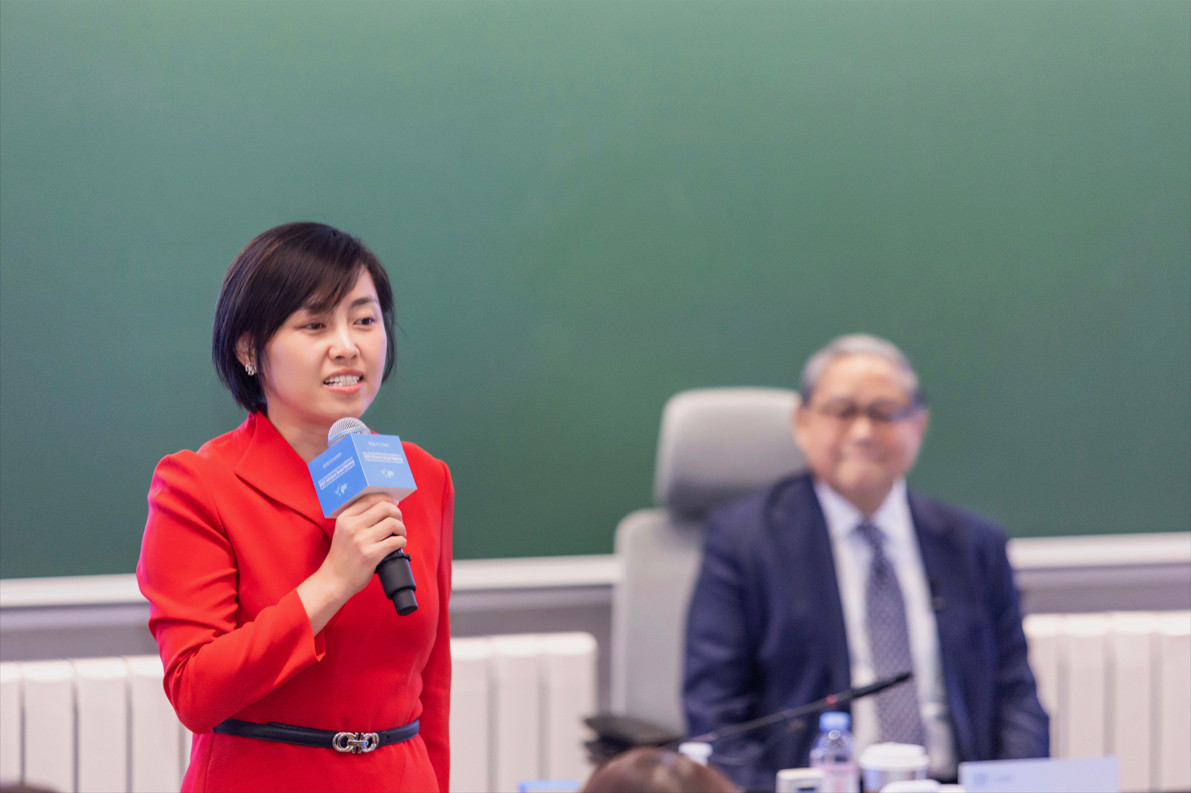
XUE Jian, deputy dean of Tsinghua SEM, is Victor K. Fung's moderator.
Fung began by reviewing the history of post-war international trade. He emphasized the important role of multilateral trade organizations such as the World Trade Organization (WTO) and Asia-Pacific Economic Cooperation (APEC), which made great contributions to achieving equal, open, and inclusive trade development for countries around the world. But the tense geopolitical situation poses challenges for multilateral trade. The "open regionalism" proposed by APEC has also been neglected, which would have favored common development in the Asia-Pacific region regardless of the speed of economic development and size of countries.
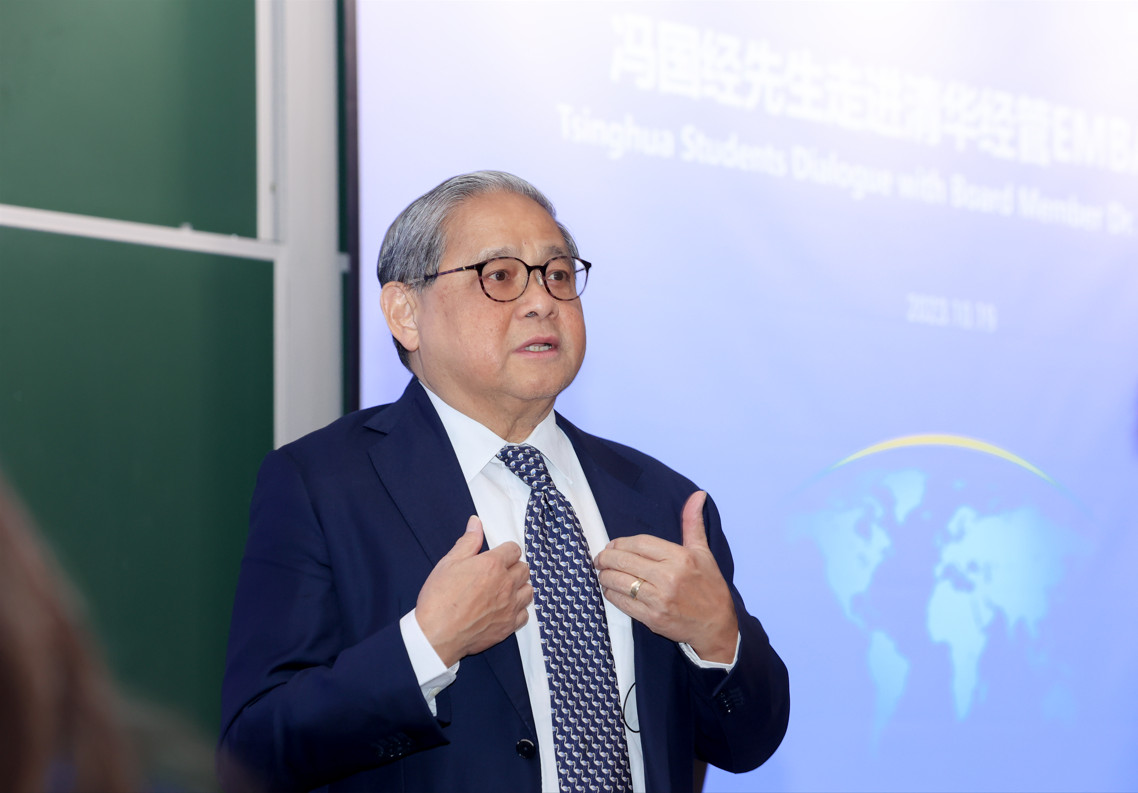
Victor K. Fung, member of the Tsinghua SEM's Advisory Board
"When no country takes real action, the multilateral system is difficult to maintain. This is why the signing of Regional Comprehensive Economic Partnership Agreements (RCEP) is significant. This largest trade agreement in history inherits and develops 'open regionalism' and lays a foundation for development in the Asia-Pacific region," Fung said. He also listed various benefits brought by RCEP to international trade, including preferential tariffs and rules of origin as well as promotion of the service industry.
Professor Fung also discussed how to capture the change of global trade trends and get involved in international trade from the perspective of companies. He said China's international exports used to consist of directly exported products and services to Europe and America, making China a global factory.
"However, it is hard to maintain this model of development under the current geopolitical circumstances. Europe and America remain the largest markets for Chinese international trade while the global supply chain is moving toward fragmentation. In this context, Chinese companies should shift their focus from direct exports to indirect exports, transferring labor-oriented industry to Southeast Asian countries such as Vietnam, Bangladesh, and Indonesia. This 'China + N' strategy will help Chinese companies go global and take initiative in the current geopolitical environment," Fung said.
2023 marks the 10th anniversary of the Belt and Road Initiative. When talking about multilateralism and international trade development at the national level, Fung said, "We should continue our progress in implementing the Belt and Road Initiative and to tell China's story better to a global audience. Let developing countries and developed countries know that in terms of economic development, China needs to go together with the global community. We all don't want a zero-sum game," Fung said.
He said governments, as well as entrepreneurs, should understand the role of small and medium-sized enterprises and provide more support. For example, there are many small and micro enterprises in a scattered layout, and digital platforms work best for them. By comparison, medium-sized enterprises have sufficient capital and talent reserves, are engaged in light industries, and play an important role in international trade. "Although they are both important, their functions and positioning are different. We should recognize that medium-sized enterprises are the vanguard for our country to go global in the future given its strength in the geopolitical situation," Fung said.
He reiterated the importance of the international circulation for the long-term development of the Chinese economy. "With domestic circulation as the mainstay of the new economic development pattern, international circulation is an essential supplement," Fung said. He expressed his expectation for RCEP to grow further into a global multilateral trade system.
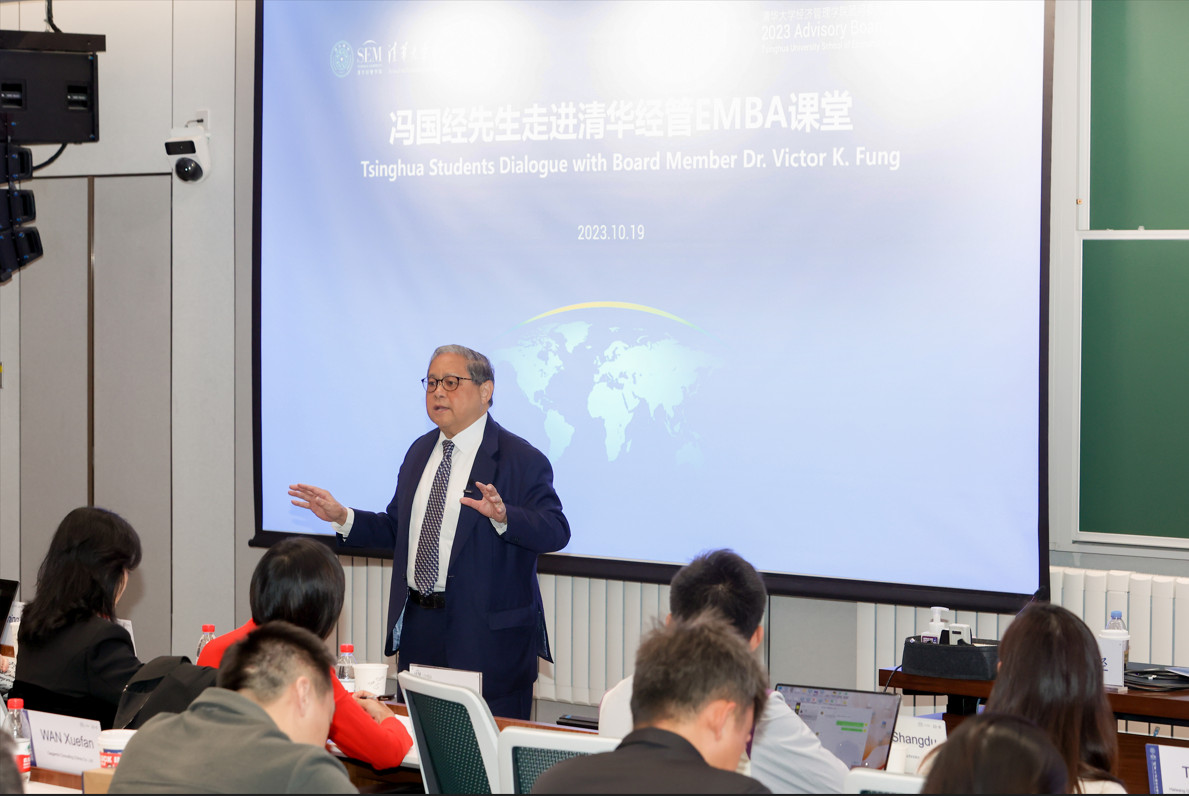
Professor Fung speaks with Tsinghua SEM's EMBA students.
In the interaction session, when asked about how Chinese brands can expand abroad in the current challenging business environment, Fung named two important points: "One is China's unique role in controlling global inflation and promoting multilateralism; the other is developing China's tertiary industry, which already accounts for more than half of the GDP and holds huge potential to provide high quality services for Chinese companies abroad."
Fung also spoke at length about sustainable business operations for enterprises, Hong Kong's function in global trade, small and micro enterprises expanding into foreign markets, and legal and regulatory challenges for medium-sized enterprises.
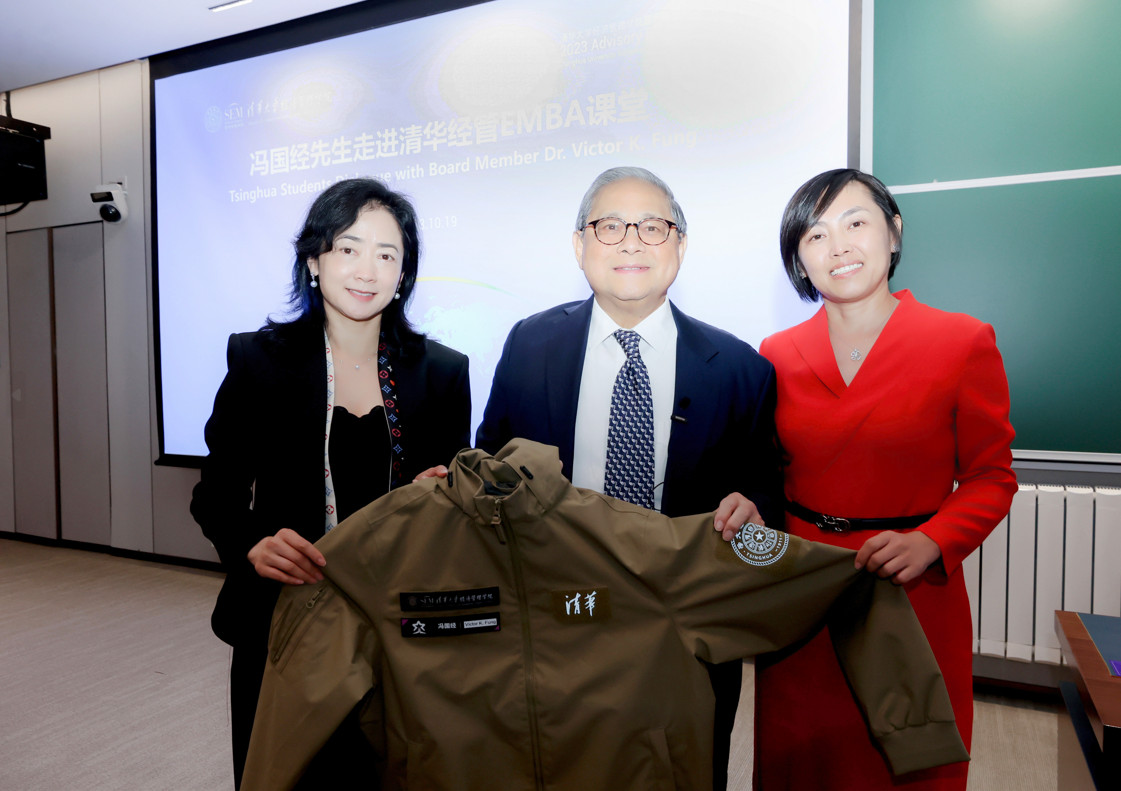
XUE Jian and JIA Li (right) present Professor Fung with a tailored coat.
"Entrepreneurs in this new era must understand global trend and optimize a strategy that is beneficial for all. Professor Fung's leadership, pioneering management mindset, and determination in advancing innovation are worth learning for every entrepreneur," XUE Jian said. To show the school's appreciation for Professor Fung, XUE Jian and JIA Li, director of Tsinghua EMBA Education Center, presented Fung with a special coat printed with his name. It was the same type of coat worn as a uniform by EMBA students' retracing walks through Southwest Associated University in Yunnan Province earlier this year. XUE said the "Knowing China by Walking" curriculum was unique to Tsinghua SEM's EMBA program: participating students could visit the century-old Li & Fung Group and learn how to manage a successful corporation in the future.
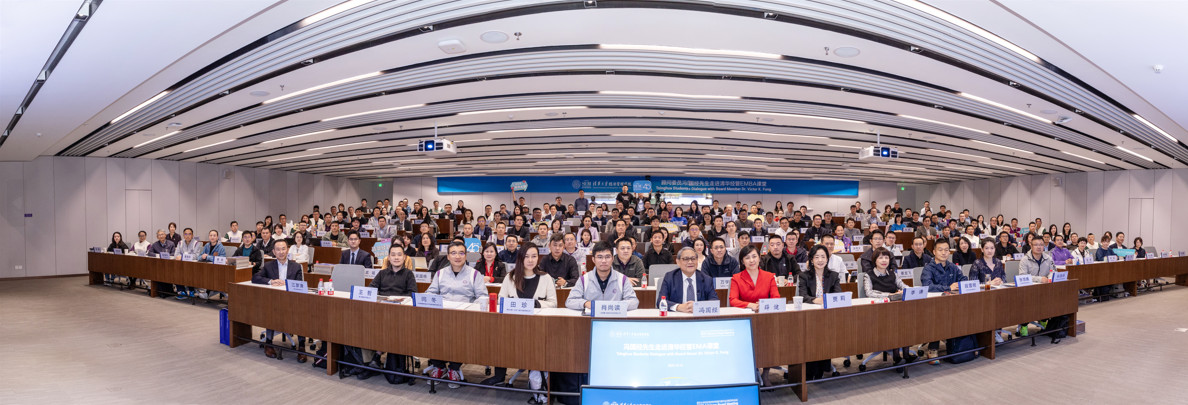
Group photo
Source: EMBA Education Center
 Latest News
Latest News